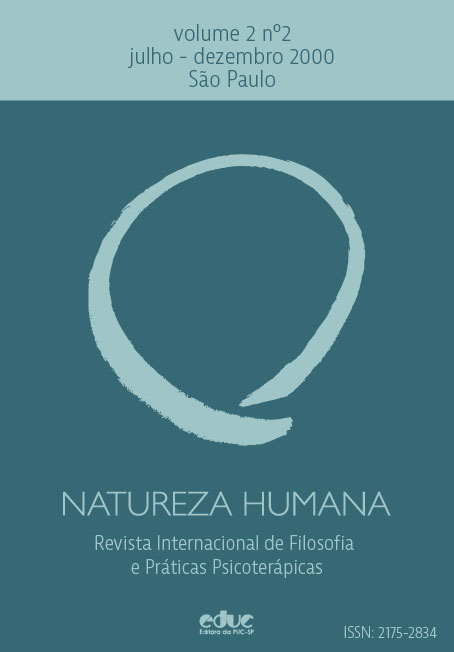Existential modality and formal indication: elements for an existential concept of morality
DOI:
https://doi.org/10.59539/2175-2834-v2n2-700Keywords:
Heidegger; formal indication; possibility; morals.Abstract
In this paper are examinated two central notions of hermeneutic phenomenology, exposed in Heidegger's Being and Time: the concepts of formal indication and existential possibility. Both notions are connected with the problematic of moral philosophy, that is, the author mantains that a existential concept of moral entails both a set of problems and a specific methodology, that arise from the formal indication of Dasein's ontological structure as existencial possibility. The author also asserts that the existential modification from inautenticity to the autentic way of being should not be viewed as bearing a moral or normativ meaning by it self, but represents the development of individuality within a realm of beings that are not instances of a type.Downloads
Published
2024-05-17 — Updated on 2000-05-17
How to Cite
Reis, R. R. dos. (2000). Existential modality and formal indication: elements for an existential concept of morality. Human Nature - International Philosophy and Psychology Review, 2(2), 273–300. https://doi.org/10.59539/2175-2834-v2n2-700
Issue
Section
Artigos








